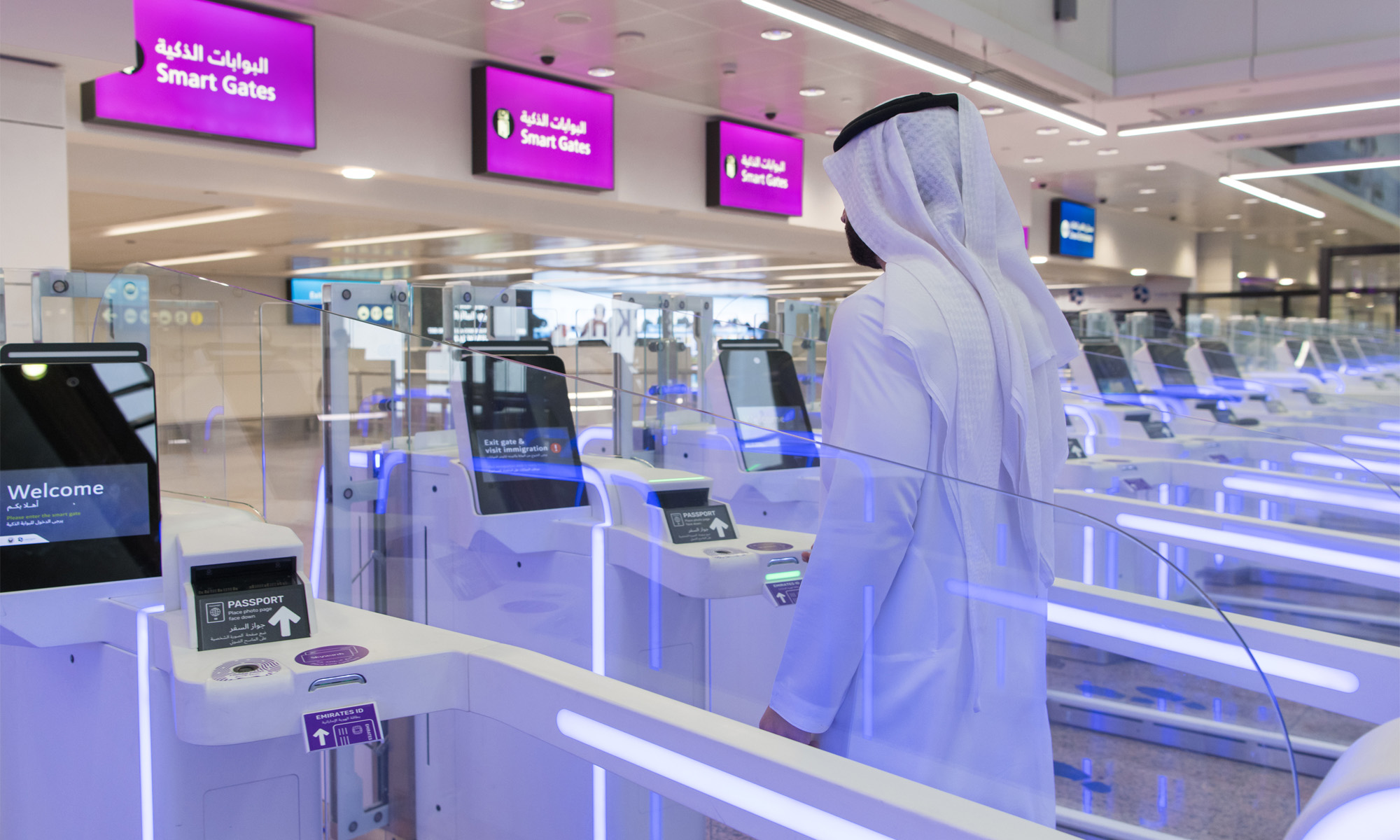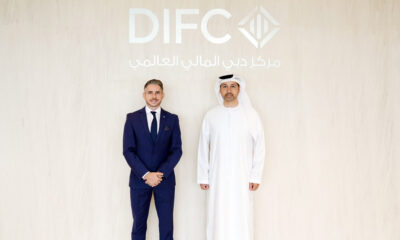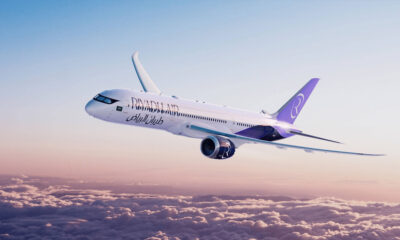News
Dubai Airport To Introduce Complete Biometric Admin System
The new technology will make journeys faster and seamless by identifying people based on unique physical and behavioral cues.

Dubai Airport is working on a unified biometric system for check-ins, immigration, and boarding that will improve speed and efficiency for passengers.
Speaking at a press conference yesterday, the General Directorate of Residency and Foreigners Affairs (GDRFA) said that Dubai International Airport would deploy the technology to identify individuals based on unique physical or behavioral characteristics.
This single system will increase the number of passengers that can be handled by airport staff while eliminating the need for immigration counters, officials explained.
“We have been working on this one biometric project for two years. The idea is to make passenger journeys faster, easier, and seamless using one biometric. For example, passengers coming for check-in will use the same biometrics in immigration, lounge, and boarding the aircraft. We call it a smart journey. In the future, we may not see classic counters as we know them today,” said Major General Obaid bin Suroor, deputy director-general of GDRFA.
Meanwhile, Major General Talal Al Shangeti, assistant director-general of the Airport Passport Sector at GDRFA, said that the GDRFA was working with all stakeholders to improve services to make Dubai International Airport one of the best in service.
Also Read: Tourists Can Now Use Their Home E-Wallets In The UAE
Over 42 million passengers used airports and immigration borders, with 37% using smart gates during the January-June period.
“Our target is to reach 80% of people using smart gates and other technologies. We hope to achieve this in a couple of years. We believe Dubai airport will completely deploy biometric technology,” revealed Major General Talal.
Currently, there are 120 operational smart gates at Dubai International Airport, and the aim is to reach 150 by the end of 2023 or early 2024.
News
Alienware Just Announced Six New Gaming Monitors
The new models include three QD-OLED and three budget-friendly QHD options, expanding the company’s lineup for all gamers.

Alienware has just updated its gaming monitor lineup with six new additions, including the highly anticipated Alienware 27 4K QD-OLED Monitor. The latest wave of releases is set to reach more gamers than ever, offering high-end QD-OLED displays alongside more budget-friendly options.
The latest displays clearly show that the company is doubling down on QD-OLED with three new models sporting the technology. A redesigned Alienware 34 Ultra-Wide QD-OLED Monitor is also making a return, further refining what is already a fan-favorite display.
A Unified Design: The AW30 Aesthetic
All six monitors feature Alienware’s new AW30 design language, first introduced at CES. The AW30 aesthetic brings a futuristic, minimalist look that unites the entire lineup under a cohesive visual identity.
Pushing QD-OLED Even Further
The refreshed Alienware 34 Ultra-Wide QD-OLED Monitor (AW3425DW) builds on its predecessor’s success with a 240Hz refresh rate (up from 175Hz) and HDMI 2.1 FRL support. It also gains G-SYNC Compatible certification alongside AMD FreeSync Premium Pro and VESA AdaptiveSync, ensuring ultra-smooth performance. With a WQHD (3440×1440) resolution and an 1800R curve, this display enhances immersion for both gaming and cinematic experiences.
For those who crave speed, the Alienware 27 280Hz QD-OLED Monitor (AW2725D) pairs a high refresh rate with QHD resolution, balancing sharp visuals with ultra-smooth gameplay. Meanwhile, the Alienware 27 4K QD-OLED Monitor (AW2725Q) delivers stunning clarity with an industry-leading pixel density of 166 PPI, making it the sharpest OLED or QD-OLED monitor available.
Also Read: Infinite Reality Acquires Napster In $207 Million Deal
Worried about OLED burn-in? Alienware’s entire QD-OLED lineup comes with a three-year limited warranty covering burn-in concerns, offering peace of mind for gamers investing in these high-end displays.
Bringing QHD To A Wider Audience
Alongside QD-OLED, Alienware is also releasing three new QHD gaming monitors aimed at more price-conscious gamers. The Alienware 34 Gaming Monitor (AW3425DWM), Alienware 32 Gaming Monitor (AW3225DM), and Alienware 27 Gaming Monitor (AW2725DM) provide a range of sizes and formats to suit different preferences:
- The Alienware 34 Gaming Monitor (AW3425DWM): An ultrawide (WQHD) option for a panoramic, immersive experience.
- The Alienware 32 Gaming Monitor (AW3225DM): A standard 16:9 panel for a traditional but expansive desktop setup.
- The Alienware 27 Gaming Monitor (AW2725DM): A 27” display offering the same performance in a more compact form factor.
All three gaming monitors feature a fast 180 Hz refresh rate, a 1ms gray-to-gray response time, and support for NVIDIA G-SYNC, AMD FreeSync, and VESA AdaptiveSync to eliminate screen tearing. Additionally, with 95% DCI-P3 color coverage and VESA DisplayHDR400 certification, these displays deliver vibrant colors and high dynamic range for lifelike visuals.

























